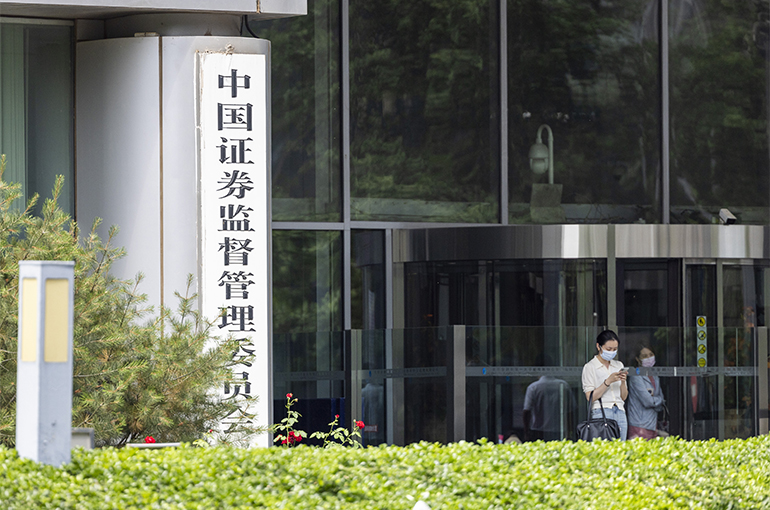 China to Issue More Policies to Enhance Quality of Listed Firms
China to Issue More Policies to Enhance Quality of Listed Firms(Yicai) March 8 -- China will implement new policies to improve the quality of listed companies, according to the chairman of the country’s securities watchdog.
The main measure that the China Securities Regulatory Commission will introduce is significantly expanding the coverage of on-site inspections for initial public offerings, Wu Qing said on March 6.
The CSRC is collaborating with relevant departments to build a comprehensive punishment and prevention system targeting illegal activities, such as financial fraud, embezzlement of listed companies’ interests, and unauthorized share reduction, Wu explained.
The regulatory focus is cracking down on those who reduce their holdings through illegal means, such as fake divorces and short selling, Wu noted. Companies that have not distributed dividends for several years or have a low dividend payout ratio may also face restrictions, including share reductions for controlling shareholders and the implementation of special treatment risk warnings, he added.
China will continue to pursue fraudulent activities, market manipulation, and insider trading and hold controlling shareholders, actual controllers, executives, and related minor shareholders accountable, according to Wu.
Moreover, the CSRC will establish stricter delisting criteria while creating a more convenient environment for voluntary delisting, as well as broaden the diverse delisting channels and encourage some companies to voluntarily delist, Wu pointed out.
Optimizing the policy environment and promoting corporate restructuring through mergers and acquisitions were also focal points for some delegates during the Two Sessions, China’s ongoing annual policy setting meetings.
M&A restructuring is an important means for the growth of technology innovation enterprises. Against the backdrop of obstacles in the IPO process, M&A restructuring has become a crucial way for venture capital projects to exit and revitalize funds.
The applicable standards and requirements for tax policies related to M&A restructuring need further clarification and optimization, as companies still face difficulties in cross-border stock-for-stock M&As, said Cai Jianchun, general manager at the Shanghai Stock Exchange and a member of the Chinese People’s Political Consultative Conference. Under traditional valuation methods, M&As of technology innovation firms often result in overvaluation and excessive goodwill, Cai added.
Editor: Futura Costaglione